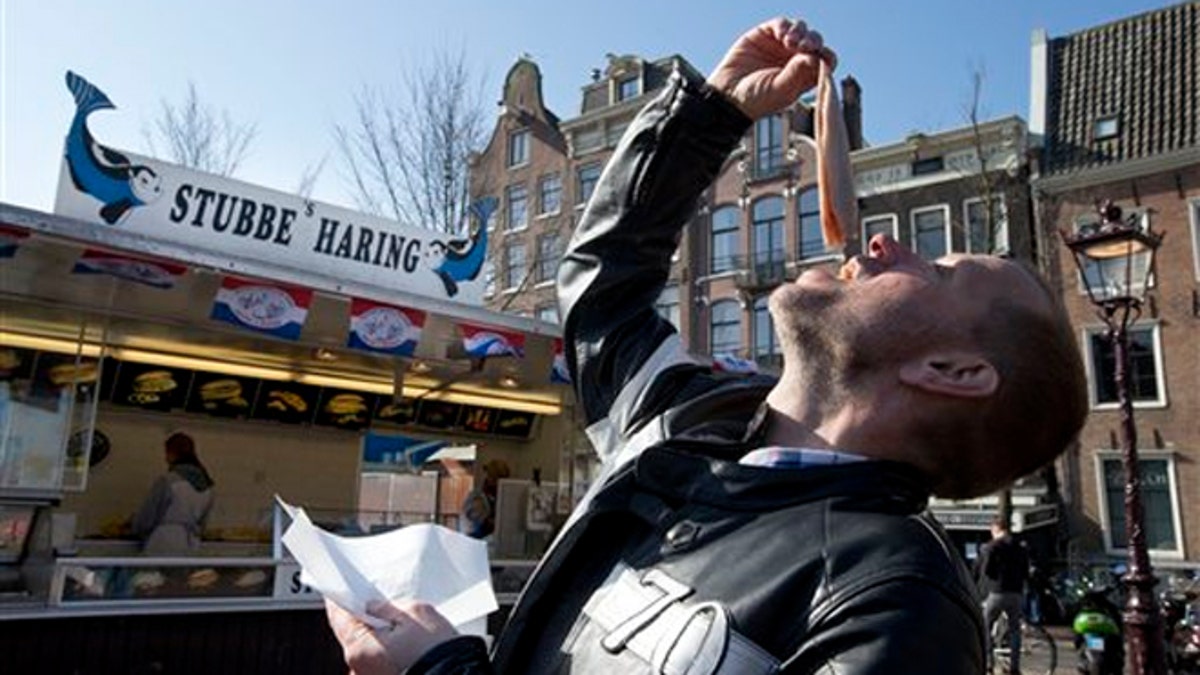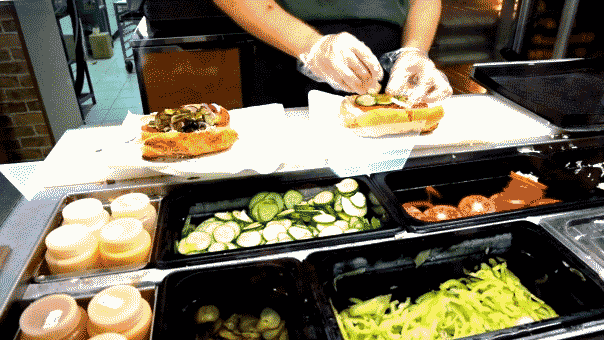
For a couple dollars, you get yourself a herring that has been partially gutted, preserved in brine, then skinned and filleted. (AP)
Tilting your head back, pinching a herring's tail between your thumb and forefinger and lowering it into your mouth, you're not just eating a raw fish. You're getting a briny taste of Dutch history.
Dotted around Amsterdam and across the Netherlands, humble stands selling North Sea herring give the locals a year-round fish fix thanks to a centuries-old preserving process backed up these days by a healthy dose of deep freezing.
No trip to the Netherlands can be considered complete without tasting this national snack — the Dutch equivalent of eating a hot dog or pretzel in New York, but positively healthy by comparison.
For a couple of dollars, you get yourself a herring that has been partially gutted, preserved in brine, then skinned and filleted (preferably as you watch) by a deft, knife-wielding worker.
A good herring is a thing of simple beauty, with a firm but almost creamy texture due to its high fat content and a salty, fishy taste of the sea.
For hundreds of years, the fish were caught and had their gills and part of the gut cut away — leaving in the pancreas, which helps develop the flavor of the flesh — and immediately submerged in salty water to preserve them. These days, herring are caught in the North Sea and mostly gutted and laid in brine onshore, sometimes frozen in brine to preserve them longer.
At Stubbe's Haring stand, a trailer set up on a bridge at the end of the historic Singel canal close to Amsterdam's central railway station, the herring are street food at its best. There are no seats or tables; you just eat on your feet, preferably gazing down the canal and standing out of the way of the cyclists who whizz past ringing their bells impatiently at any tourist who inadvertently strays onto a bike path.
How your herring is served depends on where you buy it.
In Amsterdam, custom dictates that the herring fillets are cut into pieces, smothered with chopped, raw onion and served with a side order of sliced, picked gherkins and a tiny decorative Dutch flag on a toothpick that doubles as your cutlery. Elsewhere in the country, the herring are served filleted but whole and still attached to the tail, providing a handy piece to hold onto as you drop the salty, fatty fillets into your mouth.
In The Hague, a stand outside Parliament, Haringkraam Buitenhof, even has a tap and soap dispenser to wash the post-snack fishy smell off your hands.
If sampling a herring leaves you hankering to see their natural habitat, you can head to the North Sea town of Zandvoort aan Zee, a half-hour train journey west of Amsterdam, for a stroll along the beach. Alternatively, you can do what most tourists do and take a canal cruise and visit the beautifully renovated Rijksmuseum.








































